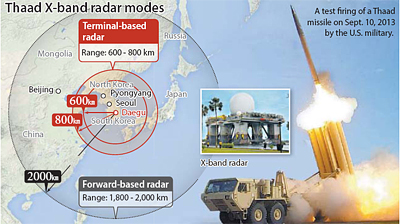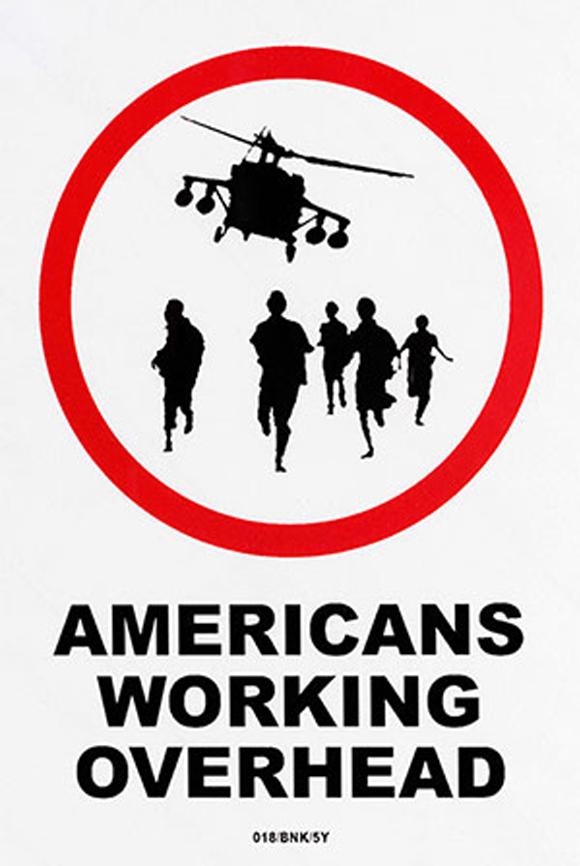… Xi and Putin are trying to achieve a political solution to a political problem. I’m terrified that the US will do something stupid because it’s not the power sitting at the head of the Grownup Table. Actually, the US is mysteriously absent from the Grownup Table. Oh, look, over there in the corner, wearing the “dunce” hat, it’s America!
Russia and China on Tuesday proposed a plan for defusing tensions over North Korea, suggesting that Pyongyang declare a moratorium on nuclear and missile tests while the United States and South Korea refrain from large-scale military exercises. [reported in wp]
Hey, that’s a shockingly practical idea: stop practicing “decapitation strikes” against a neighboring regime, while screaming that they have no business trying to defend themselves, and demonstrating a complete lack of respect for sovereignty everywhere.
They specifically opposed U.S. missile defense systems in the region, saying their deployment “seriously damages strategic security interests of regional powers, including Russia and China” and hinders peace and stability.
This is actually downplaying things significantly. First off, the US has been deploying anti-missile systems to South Korea, which the US knows are a destabilizing factor in an arms-race. Back in the “Mutual Assured Destruction” days of the cold war, it was considered dangerous and irresponsible to attempt to build a “missile shield” (Reagan did anyway, of course) because it breaks the balance and leads one party to believe that they may have the potential of winning a nuclear war. In the case of the Korean peninsula, the US’ deployment of THAAD is not to break the balance of power, but rather to preserve its existing regional dominance; it’s an example of a strategic technique in which defense is a strong offense.

THAAD’s radar systems would also cover a huge chunk of China’s airspace. Coincidence! Totally!
The US’ deployment of the THAAD is a pretty transparent attempt to demonstrate its effectiveness, in order to make China nervous about its “area denial” capabilities. China has been developing a mix of cruise missiles (including some very long-range ones) that would jeopardize the US Navy’s ability to go wherever it wants, whenever it wants. That’s a nice way of saying “your nuclear carriers resemble ducks waiting to be smoked” which, everybody who studies modern warfare knows, is a sure-fire recipe for the US DoD having a great big freakout. So, the deployment of THAAD serves several purposes: 1) it warns China (if it works) 2) it maintains the US dominance over North Korea 3) it keeps Japan strategically beholden to the US. The fact that THAAD uses the citizens of Seoul as game tokens in a completely unnecessary game of “mutually assured destruction” is completely beside the point. South Korea has always been a game token for the US, and the South Koreans have always known that, which is why they are periodically ungrateful for the US’ generous assistance.
Back in June, the South Koreans suggested loudly to the US that THAAD deployment should … maybe be done on South Korea’s schedule, not the US’. Their reasons were pretty specious: South Korea was having an election and wanted to let the people express their opinion, in terms of the representatives they elected. But none of that matters a tinker’s fart to the US, which not only deployed the THAAD on Lockheed-Martin’s shareholders’ schedule, it violated the agreement with South Korea while doing so: [reuters]
South Korean President Moon Jae-in has ordered a probe after his Defence Ministry failed to inform him that four more launchers for the controversial U.S. THAAD anti-missile system had been brought into the country, his spokesman said on Tuesday.
“President Moon said it was very shocking” to hear the four additional launchers had been installed without being reported to the new government or to the public, presidential spokesman Yoon Young-chan told a media briefing.
 That’s how concerned the US is with South Korea’s sovereignty; it’s like they’re a colony or something.
That’s how concerned the US is with South Korea’s sovereignty; it’s like they’re a colony or something.
The North Koreans understand nuclear deterrence and the dynamics of nuclear weapons quite well – that’s why they have been working to get them. As Richard Rhodes reports in The Twilight of the Bombs:
At a dinner following a meeting between Kim Jong Il and South Korean president Kim Dae-Jung in the summer of 2000, a South Korean newspaper publisher asked Kim Jong Il why he was spending so much money on ballistic missiles. “The missiles cannot reach the United States,” the Dear Leader answered, “and if I launch them, the U.S. would fire back thousands of missiles and we would not survive. I know that very well. But I have to let them know I have missiles. I am making them because only then will the United States talk to me.” [rhodes]
Meanwhile:
Before arriving in Moscow Monday, Xi warned President Donald Trump that “some negative factors” were hurting U.S.-China relations.
That is code for “stop trying to counter-balance China by arming Taiwan and sending your navy sniffing around the Spratlies.” The Chinese are not thrilled at the idea of having their capital and their entire backyard under the fire-control radar of a US anti-missile system. Imagine the shitfits from Washington if China stationed area denial weapons in Cuba. Oh, wait, we’ve already seen what happens when someone does that. Maybe Quebec?
It’s how the Grownup Table works: you put your cards down, explain what you want, and see if you can come to terms with the others at the table. It’s, oh, I don’t know… Oh, I’ve got it: it’s the art of the deal.

The US press probably won’t report on this but US and South Korean forces did a “demonstration” precision-firing test of MLRS missile batteries, because, as mommy always said, “two wrongs don’t make a right, but hundreds might.” The US strategy of intimidation has not worked very well! So, uh, let’s do it some more.
Defense as a strong offense: consider the Romans’ technique of marching into an area and building a walled fortress around a legion. A Roman legion, emplaced in its palisades, was virtually invincible at that time (you’ll notice, nobody ever attacked legions in their forts, you always maneuvered against their maneuvers, at best, and still going up against the Romans was generally a bad idea unless you were a Roman. Castles during the crusades, such as Krak Des Chevaliers, were offensive as well as defensive, since they provided a safe base for raiding and dominance over the local landscape.
We need to remember that the whole North Korea/South Korea “thing” is a creation of the US and Soviet Union post WWII; it was part of the landscape of power division between the two great empires that had won over the other European powers. The people of Korea were divided, like counters in the great game, between Soviet/Chinese bloc and the US. North Korea’s unilateral attempt at re-unification was clearly a bad idea, and got a lot of people killed, but it’s important to remember that the division is recent and need not be permanent. There is absolutely nothing stopping the US from demilitarizing the area, stopping its incessant assassination practice runs against the north, accepting that North Korea has become a nuclear power, and negotiating a sensible arms limit/no first use/mutually assured destruction treaty like we did with the USSR. It wouldn’t hurt if we apologized for killing 2 million of their civilians during the war, either. But: they’re just lines on the map; there’s no need to re-draw them or to draw them. Maybe the Koreans can figure out their own politics without being whipped to a war-footing by the US.
Oh, and the US really should stop portraying Kim Jong Un as a deranged clown. At this point, it’s actively embarrassing.

Bonus stupidity: all of this is forcing Russia and China closer together. Under any sane policy, you wouldn’t even need to actively play them off against each other, since they’re naturally regional rivals. While it’s always best not to have enemies in the first place, if you can’t manage that, it is never a good idea to give your enemies reasons to co-operate.
Donald’s administration keeps demanding that China do more about North Korea while at the same time angering China by arming Taiwan (disclaimer: I support an independent Taiwan but recognize global political realities). The United States is a world leader when it comes to chutzpah, but this regime is taking it to new heights.
As for North Korea, I hate the idea of them having nuclear weapons but I also understand it, though not as much as I understand Iran wanting them. There has been talk of attacking Iran for decades, so it’s difficult for me to be terrified of them wanting to defend themselves against American aggression. Perhaps the best proof that Iraq didn’t have WMDs is that they didn’t use them against a more powerful invading army.
Dunc@#1:
Under any sane policy, you wouldn’t even need to actively play them off against each other, since they’re naturally regional rivals.
US grand strategy (if there ever was one!) has certainly gone off the rails.
Tabby Lavalamp@#2:
As for North Korea, I hate the idea of them having nuclear weapons but I also understand it, though not as much as I understand Iran wanting them.
I’m with you. I think that any government that maintains nuclear weapons is abhorrent, though now that they exist, humanity needs a way to counter-balance them. It’s a horrible state of affairs.
The US’ invasion of Iraq and destruction of Libya have shown every dictator that they need WMD. It’s incredibly stupid.